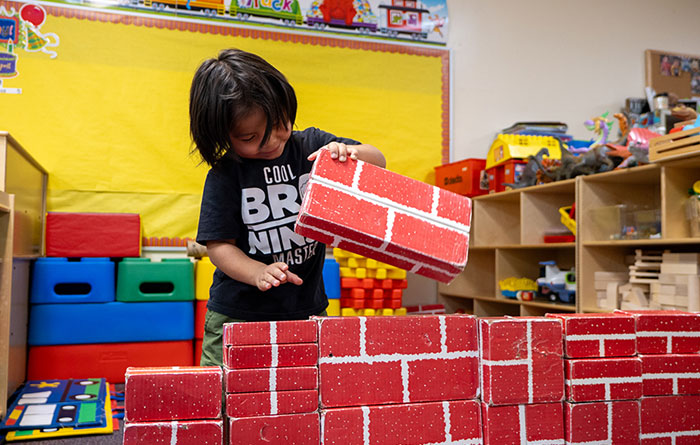Kindergarten Preparedness: A Guide for Parents and Guardians
Announcements

According to the Early Childhood Learning and Knowledge Center, Kindergarten readiness is less about age and more about the skills, behaviors and concepts children should be familiar with to begin school. Research shows children with nurturing relationships and supportive environments have the best opportunity to succeed in education. As families, caregivers and communities, we can engage in various practical skills and activities to significantly boost our children’s readiness for new learning experiences.
Exploration-based Learning
Encouraging curiosity and a love for learning is essential for kindergarten readiness. Children should demonstrate an eagerness to learn, show creativity through play and maintain attention during tasks. Providing daily opportunities for play and exploration before beginning kindergarten will foster a sense of discovery and problem-solving skills critical for success in school.
Motor Skills
Physical development is closely linked to a child’s ability to independently engage in school activities. From mastering basic motor skills like walking, running and climbing to performing self-help tasks such as dressing and using the toilet, a child ready to begin kindergarten will show adeptness in various physical abilities. At home, parents and guardians can help children grow these skills through playful activities like obstacle courses and scavenger hunts.
Emotional and Social Growth
While kindergarten serves as an introduction to academics, it is also an essential step in a child’s social and emotional growth. Children should exhibit skills such as sharing, rule-following and appropriately expressing emotions. Developing empathy and understanding others’ feelings foster positive relationships and a supportive learning environment.
Mathematical Thinking
Basic number skills lay the foundation for mathematical thinking in kindergarten. From counting blocks to recognizing shapes and patterns, children should be familiar with basic mathematical concepts before entering school. Integrate number learning into everyday activities to naturally build your child’s math skills. Children are naturally interested in numbers and finding out “how much” and “how many.” Encourage them to identify numbers of items, like shoes or fruits, to help them understand quantity and practice counting.
Early Reading and Writing
Early literacy skills encompass various aspects, such as understanding sounds, recognizing print and beginning to write. Parents and guardians should actively engage with their children in meaningful conversations and encourage them to express their thoughts and feelings. Encouraging a love for books and setting aside time for shared reading can significantly boost a child’s foundational reading abilities and promote essential literacy skills for academic success.
Caregivers play a vital role in preparing children for kindergarten success. Incorporating activities that promote cognitive, social and emotional development into your daily routine ensures that your child enters kindergarten ready to learn and thrive.
Sources:



